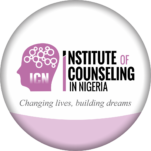Postnatal depression is a type of depression that begins after childbirth, occurring within a year of childbirth. (Lee, D. T., & Chung, T. K. 2007). The sufferer usually experiences symptoms such as moodiness and sadness that persist over time, poor appetite, inability to concentrate, consistent tiredness, and low energy, feeling sleepy during the day and having trouble sleeping at night, loss of interest in other people and events, avoidant behavior, problems bonding with the newborn and terrifying thoughts such as the baby getting hurt by the mum (World Health Organization, 1992; Katon et al., 2002; Adeyemo et al., 2020). While postnatal depression can be experienced by both men and women, the discussion here is limited to postnatal depression in women.
Postnatal depression is more severe than “baby blue” (an emotional reaction to delivery stress and hormonal changes characterized by anxiety, mood swings, and cries, lasting usually between a few days and 2 weeks) making it be regarded as “a thief who steals maternity” (Currò, et al., 2009). On a global scale, it is estimated that postnatal depression affects over 15% of women after birth (Abrahams, & Stellenberg, 2015; Arifin, Cheyne, & Maxwell, 2018). A certain report stated that the incidences of postnatal depression in developing countries are three times of developed countries, with a variety of risk factors accounting for its high prevalence (Halbreich & karkun, 2006). For example, it was reported that Uganda has an estimated prevalence of 43%, with Cameron recording over 23%, while 13.1% was reported in Ethiopia and over 11% was reported in Morocco (Adeyemo, 2020). In Nigeria, a particular study reported a 35% prevalence rate among the participants.
Postnatal depression causes great distress to the woman (the mother), the child, and the entire family as the mother’s ability to take proper care of her child is affected. If the condition is not detected and treated it could impair the cognitive, social, and behavioral development of the child (Bell, & Andersson, 2016; Arifin, Cheyne, & Maxwell, 2018). It has been suggested that children of sufferers could experience a slower pace in the development of reading ability and disturbing patterns of communication and emotional adjustment at the early stage of development (Fancourt & Perkins 2018).
Risk Factors
There are certain risk factors that predispose individuals to postnatal depression. These factors comprise both biological and psychosocial factors as noted below.
Genes – explaining the role of genes in predisposing individuals to postnatal depression, a report suggested that depression runs in the family and that siblings of sufferers stand higher chances of experiencing the condition (Lee, D. T., & Chung, T. K. 2007).
Depression in the past and other mental disorders – another predisposing factor to postnatal depression identified by studies is a history of depression and other mental health problems. The chances of developing depression are higher among women that have suffered from depression and other mental problems in the past (Leigh, & Milgrom, 2008; Abrahams, & Stellenberg, 2015).
Lack of social support – the absence of social support has been reported of accounting for postnatal depression (Yusuff et al., 2015).
Age of the mother – age of the mother has been identified by studies of predisposing individuals to postnatal depression. Specifically, younger mothers have a higher risk of developing postnatal depression (Rubertsson et al., 2003; Boyce & Hicky, 2005; Wittkowski,2014).
Unwanted gender of the child – there is a general preference for male children among patrilineal cultures that place a lot of value on their heirs. Women from such cultures have been reported of having a high risk of developing postnatal depression (Nakku et al., 2006).
Adverse life events – negative events like the loss of one’s relative or loved one could act as a predisposing factor.
Other risk factors – other factors identified as predisposing women to postnatal depression include low self-esteem, marital problems, past sexual abuse (Buist &Barnett, 1995), level of education (Davis et al., 2003), unemployment (Abrahams, & Stellenberg, 2015) pregnancy termination in the past or a miscarriage (Cryan et al., 2001).
Managing Postnatal Depression
Postnatal depression can be managed just like every other mental health problem. The management includes the following.
Counseling/psychotherapy – one of the most effective approaches to the management of postnatal depression is professional counseling. In professional counseling, a trained counselor guides individuals to realize the cause of their problems and helps deal with them using a variety of counseling approaches. Seeking professional counseling is one of the best available options to deal with postnatal depression.
Addressing social stressors – another approach to the management of postnatal depression is to encourage support from the environment. The family should give support and assistance to the new mother especially in caring for the baby and household duties. Material support in form of finance should be provided as well.
Self-care – in managing postnatal depression, it is essential that the woman give attention to self-care. Getting enough rest, sleep, eating well, and exercising are all important in managing postnatal depression.
Medication – though used mostly in severe cases, medication such as antidepressants is used by licensed professionals in the treatment of postnatal depression. However, usage of medication should be strictly based on experts’ prescriptions as medications could have side effects.
Postnatal depression is a global mental health problem and developing countries, a category in which most parts of Africa fall, have a higher prevalence of it. While postnatal depression can be managed or treated, it is important to seek professional help early enough to foster mothers’ mental health, the baby’s, and the entire family’s.
